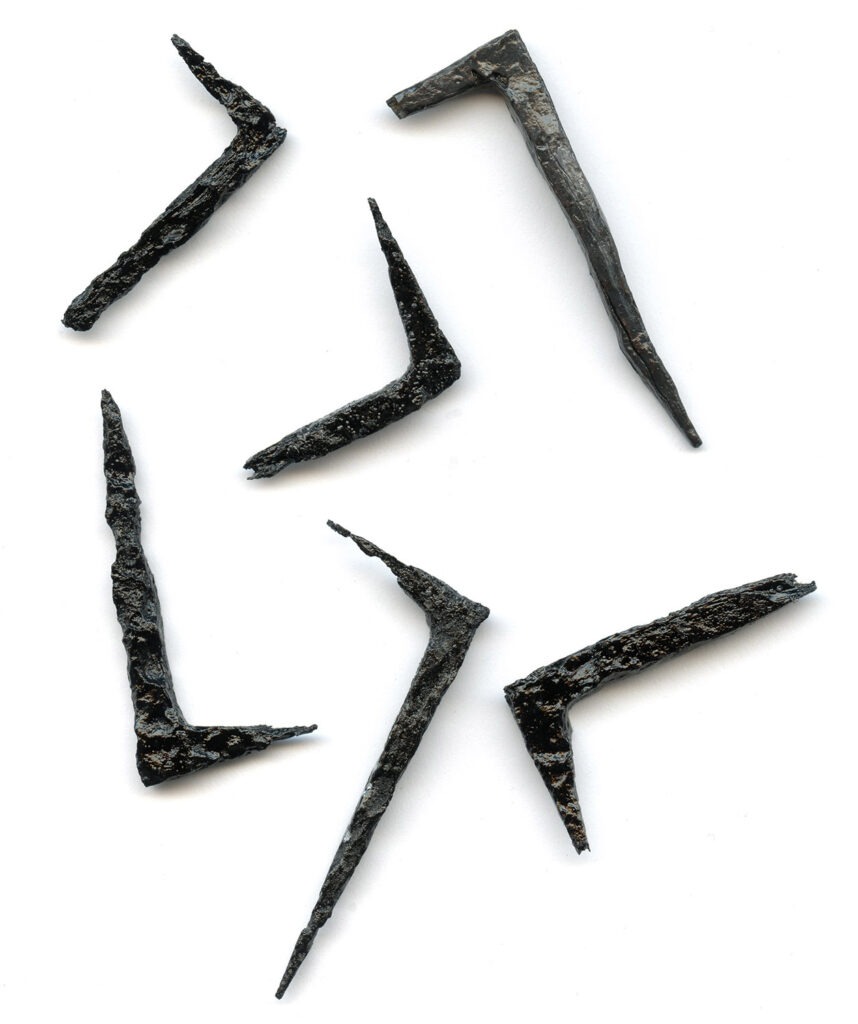

“Atticus chuckled. ‘She earned it, so don’t feel too remorseful.’ I waited, on tenterhooks, for Uncle Jack to tell Atticus my side of it. But he didn’t. He simply murmured, ‘Her use of bathroom invective leaves nothing to the imagination.’”
Harper Lee, To Kill a Mockingbird, page 99
Much of our everyday language—in the form of idioms, clichés, or metaphors—makes reference to textiles. Using these phrases, we weave stories, spin tales, and thread narratives. But where do these expressions come from, and what do they mean?
In a new blog series posted on intermittent Mondays, we will be unpacking textile-related idioms. Stay tuned to learn their metaphorical and historical meanings.

To be “on tenterhooks” refers to being in a state of nervousness and apprehension. The phrase is often used to describe anxiously awaiting a specific event, similar to “waiting with bated breath” or being “on pins and needles.” There are certainly many phrases that represent this phenomenon!
A tenterhook refers to a hooked nail used to affix a piece of cloth to a tenter, a wooden frame on which cloth—often wool—is stretched to dry. The cloth is attached to the perimeter of the tenter by its selvedges, allowing it to dry evenly without shrinking. The word “tenter” comes from the Latin tendere, meaning “to stretch.”
The phrase “on tenterhooks” earned its current meaning by the eighteenth century, although similar adages, including “on tenters,” were used in the seventeenth century. The idiom is often misrepresented as “on tender hooks,” which surely evokes a more pleasant feeling than being stretched with anxiety and dread.
